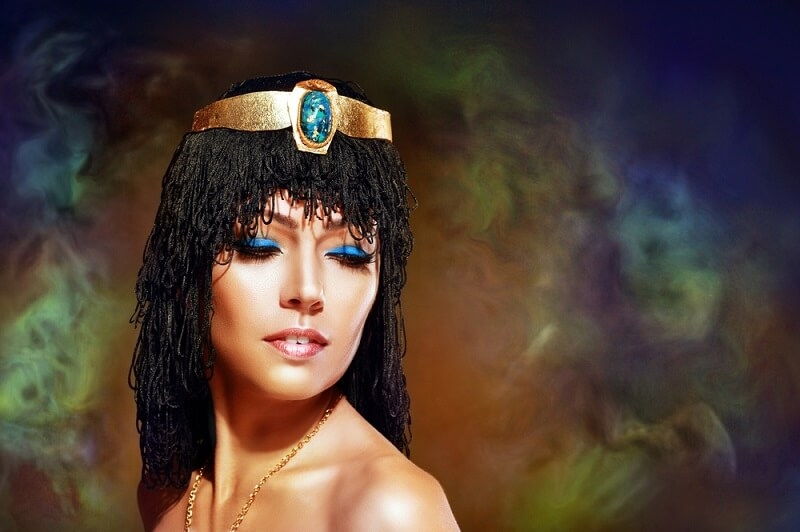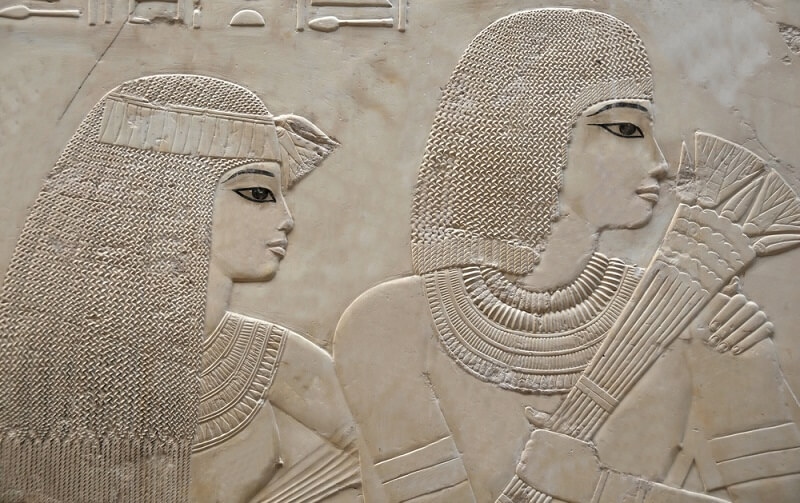
Hair was crucial to the culture of ancient Egyptian society, in which it didn't only matter aesthetically but also contributed to identity and status. In respect to the themes of Egyptian religion and hair work, hair seems to be an almost divine essence that could unify the individual within the spiritual world, grooming was about much more than just personal vanity, it was enmeshed, part of the body of spiritual-cultural traditions. The intricate relation of hair with religious practices gives an interesting view of how ancient Egyptians viewed the body as a vessel for earthly as well as godly purposes.
Hair was quite crucial in expressing identity, devotion, and connection to the divine in ancient Egypt. Spiritual grooming was a huge part of deeply ingrained religious thoughts. Egyptians believed that hair could influence their spiritual well-being, and appropriate grooming was a means of maintaining purity and readiness for religious rituals. Men and women alike often changed their hairstyles in observance of specific gods or in preparation for religious ceremonies.
Priests and priestesses were obliged to keep shaved heads as a sign of purity and blessing to their duties. Such an act depicted their renunciation of the world's vanities and prepared them to serve the gods. However, some of the gods, for instance, the goddess of love and beauty, the goddess Hathor, had elaborate hairstyles, making people emulate them while worshipping.
Among the most striking elements of religious grooming in the old land is ritual shaving. Head and body shaving was actually an act to purify for entering sacred domains or performing acts in rituals. In some instances, shaving was part of a purificatory procedure, this would include priests or commoners aiming for divine preference or protection.
For priests, the act of shaving every three days ensured their bodily form, and hence their flesh would be ritually clean, allowing it to assemble with a sacrosanct nature through its duties. Body hair on a priest, along with hair from the head, was an item of caution removed to avoid interrupting religious activity from impurity. This scrupulous dressing underlined reverence and respect for clean and consecrated appearance due to the sacred appearance of worshipping gods.

While shaving was an indispensable part of Egyptian religious hair practices, wigs occupied a similar amount of importance in those traditions. While mostly a form of fashion, wigs had substantial cultural and religious implications. Human hair, plant fibers, or wool wigs were worn for religious service and special events. They represented rebirth and protection as well as connection to the deity.
Many of the hairstyles were highly elaborate and reflected the degree of social standing and spiritual life of the person. For example, during religious festivities, wigs are decorated in gold and beads, they carry floral decoration, which indicates prosperity and divine empowerment. Ritual hairstyles were aesthetic representations with symbolic significance linking the world of the physical to that of the spirit.
The second area related to religious ritual practice is where burial tradition goes in relation to wigs. The hair was inserted in tombs so that the deceased wouldn't lose the connection and recognition before the god. Such a burial custom is the indicator of believing hair, even unnatural or artificially manufactured, remains the key aspect of spiritual presence.
In ancient Egypt, hairstyles often represented religious symbolism and cultural hair traditions. For instance, children's hair was styled in the "side-lock of youth," a special feature that characterized the god Horus. The side-lock of youth symbolized protection and divine favor because Horus was seen as the protector of children. Hairstyles also changed with age as individuals progressed into their social roles and spiritual paths.
Women's hairstyles were rich in symbolic meanings. Long hair, which was flowing and soft, was considered to symbolize fertility and femininity. Such attributes were connected with goddesses such as Isis and Hathor. On certain religious festivals, women used flowers and incense on their hair, and thus ritual styles were formed in the process, honoring the deities that they worshiped. This emphasized the idea that hair was not merely an ornament but a sacred means of communication between individuals and the divine.
Hair played a role beyond life into the afterlife, giving it great importance within ancient society and religious beliefs. Funerary practices often involved special rituals concerning hair to ensure that the spirit of the deceased person transitioned appropriately. Sometimes the mourners themselves cut their hair as a display of grief and identification with the deceased. Such an act would be seen as a release of earthly bonds and acceptance of rebirth in a spiritual sense.
On other occasions, the hairs were plaited or wreathed with amulets in the hope that while carrying the dead body to the afterlife, these may protect it from harm. Prayers and symbols were found written on these surfaces. They thought this would give safe passage into the soul while allowing them easy passageways to the underworld. This was indicative of a relationship between hair and spirituality toward death in the old Egyptian civilizations.
Many Egyptian gods and goddesses were usually depicted with various hairstyles that conveyed different meanings. For example, the sun god Ra was always depicted wearing a circular headdress that resembled the sun, whereas Hathor was often depicted in hairstyles showing her nurturing and protective qualities. These depictions influenced how worshipers styled their hair during these ceremonies.
Divine rulers, the pharaohs also claimed to prove their closeness to God through their hairstyles. The nemes headdress was a striped cloth usually donned by the pharaoh that symbolized his divine right to the throne and being the mediator between God and his people. This headdress covered the hair of the pharaoh, thus further emphasizing the holiness of his position.
Ancient Egyptians believed hair to be a spiritual source of energy. It was prayed and ritualized to cut, style, or decorate hair as a way of harnessing its power. This also found its application in magical practice, locks of hair were used in spells to ward off danger or to bring down divine intervention.
One that could be thought the most fascinating, however, is the "lock of life", which seems an elaborate priest's hairstyle with regards to special rites. Apparently, it was the vehicle for spiritual energy and hence allowed its user a connection to other planes unavailable for ordinary mortal contact. Hence, this shows also hair, without strictly material intention can be placed as the service means to spiritual transformations.
Hair was far more than an attribute of the body for ancient Egyptians, as it played a sacred role in religious practice, cultural identity, and spirituality. Religious practices among the Egyptians through hair show that grooming and hairstyling became an act of worship by the people themselves, showing that there is such an intense connection between the physical and spiritual worlds. Whether it is through ritual shaving and symbolic use of wigs or through hairstyles, which symbolized reverence to gods and ensured safe souls, hair has an important role in serving as a form of devotion and spiritual harmony.
The significance of hair in the context of the ancient Egyptian religious life lived on as an affirmation of the very deep understanding of the interaction between the body, the spirit, and the divine. Such findings offer insight into the ways through which ancient Egyptians used hair to represent powerful forms of identity, purity, and relationship with gods. Their practice reminds us of a universal desire for human beings to find significance in and demonstrate their devotion toward the most personal, profound aspects of being.
This content was created by AI